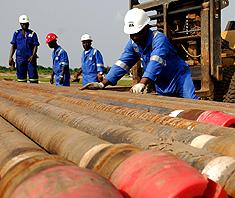
Experts say the termination of United States importation of Nigerian oil, which has serviced the relationship between both countries for decades, has already imposed significant difficulties on Nigeria, with worse to come.

According to an article just published on nbcnews.com, only 4.5 million barrels of Nigeria’s prized oil arrived at U.S. ports in April, although 40 million barrels had been imported seven years earlier. By July, just three months later, Nigerian importation had been completely replaced by local US production.
“The big fat zero was a milestone not only on the United States' journey toward energy independence, but a signpost pointing to a new world,” wrote Robert Windrem, an investigative reporter/producer with NBC News.
He described the milestone as making Nigeria “the first formerly flush oil producer to essentially lose its entire share of the U.S. market, leaving it scrambling for new customers, less able to fund its internal war on terror and less important to the U.S.”
Also commenting on the matter, John Campbell, a former US ambassador to Nigeria, said: "The collapse of the price of oil brought on by the rise in American production is fundamentally changing the world. This energy shift is akin to the collapse of the Soviet Union in its foreign policy implications."
Campbell observed that Nigeria could descend into chaos if the price of oil falls beyond its current $78-a-barrel price, because the country’s finances already have been pushed to the breaking point by oil "bunkering" (theft by Nigerian officials.)
"That oil finances the patronage, clientage network," Windrem quoted him as saying. "It is all illegal (but) it's the grease to the system, and as the value falls … the grease dries up and the system doesn't work."
Similarly, Carl Levan, a professor at American University and author of "Dictators and Democracy in African Development," said that turmoil in Nigeria could quickly spread through West Africa, noting that the region is already beset by long-running civil wars, an Ebola epidemic and political crises.